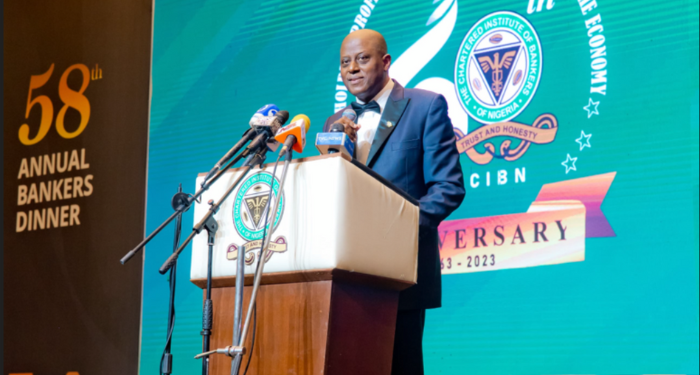The Central Bank of Nigeria (CBN) has restricted the operations of international money transfer operators (IMTOs) to only inbound transfers, stopping outbound transfers.
This implies that IMTOs can no longer facilitate money transfers from Nigeria to other countries, according to the revised guidelines for the operations of IMTOs, which were officially released on January 31, 2024.
It is a notable departure from the 2014 guidelines, which permitted the operators to engage in “allowable inbound and outbound international money transfer transactions.”
Stating the permissible activities of the operators, the new document read:
- “The permissible activities of International Money Transfer Operators shall include inbound international money transfer transactions only. The transactions shall be limited to the following activities:
- “The acceptance of monies for the purpose of transmitting them to persons resident in Nigeria.
- “Cross-border personal money transfer services, such as money transfer services towards family maintenance; money transfer services in favour of foreign tourists visiting Nigeria, etc.
- “The money transfer services shall target individual customers and the transactions shall be on “person to person”, “business to person” and “business to business” transfer basis which may be reviewed by the CBN from time to time.”
The CBN’s recent decision to restrict IMTOs to inbound transfers only marks a significant shift in the regulatory landscape for foreign exchange and remittance services in Nigeria.
- This move could have multiple implications, including potential impacts on Nigeria’s foreign exchange market dynamics and remittance landscape.
- Also, IMTOs are barred from purchasing foreign exchange from the domestic market to fulfill their obligations.
- This decision could be seen as an attempt by the CBN to manage foreign exchange reserves and stabilize the local currency by limiting the outflow of foreign currency.
- It might also enhance the monitoring of international financial transactions and prevent illicit financial flows.
- However, this could also lead to specific challenges for individuals and businesses accustomed to IMTOs for outbound transfers, compelling them to seek alternative channels.
CBN limits FX inflow payments to Naira
It appears that the CBN might have placed a ban on dollar and other foreign currency payouts for international transactions, according to the latest guidelines.
This is unlike the previous guidelines, where there was no clear statement on the currency in which the inflow payments should be made.
The new document reads:
- “All inbound money transfers to Nigeria shall be paid to beneficiaries in Naira through a bank account, or cash.
- Proceeds of IMTO more than the equivalent of $200 shall be paid through an account. Cash payments shall be made upon the provision of a satisfactory/acceptable means of identification.
- “Where the beneficiary does not have an account with the IMTO agent bank, the agent bank shall credit the beneficiary account in another bank.”
This comes about seven months after the central bank introduced the naira payout option for diaspora remittances.
Before that period, the CBN had released a circular in 2021, stressing that it is a breach of its regulations for diaspora remittance payments to be made in naira.
In the new guidelines, the apex bank noted that the exchange rate for the naira payment shall be at the prevailing rate in the Nigerian Foreign Exchange Market.
This comes barely a week after the naira crashed to a record low of N1,482.57/$ following strong demand on the official market, also known as NAFEM, exceeding the parallel market rates.
Optics
This policy might pose challenges for recipients who prefer or require US dollar payouts for international transactions.
- They may face difficulties due to the potential disparity between the official exchange rate and the parallel market rates.
- Moreover, for Nigerians living abroad and sending money home, the impact of this policy on remittance flows could be significant, possibly influencing their choice of remittance channels.
- Also, Nairametrics observed that the apex bank removed the option for foreign inflow to be received in mobile money wallets, limiting it to bank accounts.
A source with knowledge of CBN forex regulations also explained that IMTO licenses are distinct from Banking licenses as regards forex, explaining why banks are still allowed to receive them.
More Insights
- Nairametrics recently reported that the CBN banned banks and financial technology companies (fintechs) from international money transfer services.
- This development coincides with an earlier circular from the CBN aimed at curbing what it perceives as rampant foreign currency speculation and hoarding among Nigerian banks.
- The nation’s financial watchdog has been growing concerned about these activities, which can significantly distort market dynamics.
- The CBN’s revised guidelines for IMTOs represent a significant policy shift with far-reaching implications for Nigeria’s foreign exchange and remittance sectors.
- It reflects the bank’s ongoing efforts to regulate the financial landscape, particularly in international money transfers, while balancing economic stability and compliance with international financial standards.
- However, this latest policy may influence how diaspora remittances are received, and cross-border financial commitments are met.
On the global stage, this decision could also affect Nigeria’s position in the international remittance market, potentially altering the flow of remittances into the country.
Note: This story was updated to reflect new information. An earlier version made references to domiciliary accounts which have been updated.
























How does this impact companies dependent on FX
At last Nigeria is waking up to curb the colonial inferiority mentality. Very correct that the Country is going in the right direction through this new policy.
You can not have a Domicilliary Account in Naira currency in the US Banks nor in any of the European Banks, why should we entertain that type of rubbish in Nigeria.
Let us keep our pride and stop policies
that made a whole Afrcan Nation subordinate to the so called developed Nations. We are all created equally!
I am somewhat in agreement. However, how are Diaspora transitioning to Nigeria for the betterment of the Country and themselves are supposed to obtain there financials. There also, need to be away for them to obtain there Foreign Currency. CBN should evaluate the fact that the Diaspora will bring in more wealth to the Country. Not that they will be trying to take anything out of the Country. Finance works both ways. If your unable to obtain your finances how do you expect for a person to survive? Are is it that Diaspora are not really welcomed in this Country. We cannot think of only ourselves making such decisions. We cannot be selfish about this. It affects millions of people and billions of dollars.
Interesting, you can only allow, fx to come in and not out, what about business, family that depends on it to carry on with life, or CBN want to tell me that such business, individuals runs and sustain business only on the naira, this policy is crazy if it is actually implemented
Too many policies has made Nigeria a home of economic commotion. Stop this nonsense. This will not change the state of naira. While avoid the cruss of the matter. Nigeria is a CONSUMER NOT A PRODUCER. After your president has had an indoor meeting with western leaders and now you re trying to play what? Citizens suffers for all their mess.
Good talk. I aggree with you 100%
All these are panicky measures. If you don’t initiate policies to power local production of goods and services while cutting down importation, naira will continue in a free fall.
Industries are closing up and relocating outside the country.
You are unbanning things like rice which we have achieved local autarky.
Naira cannot compete with the dollar until we get intentional deliberate about import substitution and export promotion.
Until then….
Nigeria and anybody should not fool themselves thinking you can rob economic shoulders with the west with the level of corruption in resources management and over invoiced cost of running governance.
High dependent on importation, consumer mentality with insignificant level of production. It is cutting your nose to spite your face by frustrating or stopping Domiciliary account in $ when the Naira is grossly weak against the Dollar.
You will end up discouraging diaspora inward transfers and even foreign direct investment.
The only way you can stop or lower the need for a $ dominated Domiciliary account is to strengthen the value of the naira such that it is no more attractive to store value in dollars locally.
Merging the parallel and the official market rates obviously hasn’t solved the downward slide of the Naira, rather it has caused more difficulty for domestic manufacturers who used to approach the CBN for forex for imported materials or machines.
Now they have to cough out double the amount they had previously used for same quantity of items before they can produce coupled with high cost of petroleum products and an epileptic power supply from PHCN.
Consumer goods have quadrupled in prices.
There is only one simple solution to all these.
Government should stop corruption in its corridors.
Allow local processing of natural resources for export and local consumption.
Build refineries and allow it to work.
Refine all petroleum products needed locally.
Once these and more such are done the naira will rise naturally because there is less pressure on it.
Then overtime people will not be eager to want to cash out inward transfers in Dollars because of insignificant difference in exchange rate.
This policy of dollar to naira payout from CBN sound patriotric but definitely not realistic and pragramatic. It will definitely shrink the diaspora remitances which account for over $35bn dollar annually. Most people abroad will be sceptical to send their money to Dom. account in Nigeria and find alternative means to move their money thereby put pressure on the demand for dollar and weaken the Naira further. Treating the symptoms without addressing the main issues is just postponing the evildays. The solution is to increase our local production and consume local products thereby reduce the demand for foreign currency
Okay, fine!!
Let’s say they had that but I have a question.
How then will the people in diaspora convert the currency to Naira if we can’t receive in dollars.
If that is solved then we have nothing to complain about.
But let any decision not affect the people sending and the people receiving.
Meaning some one can not received money from foreign countries anymore? Meaning operator like western union and moneygram is ban from sending money to nigeria right ..